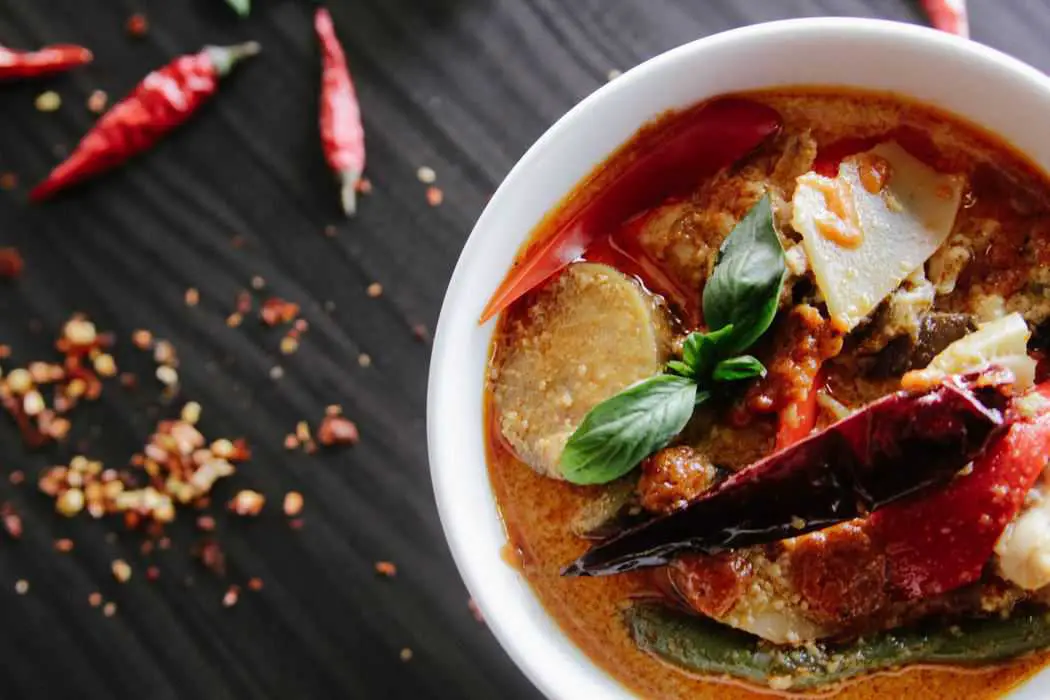We’ve all been there, you’re eating something spicy and you start to feel that unstoppable burning around your tongue and lips. Maybe you start to notice some forehead sweat, maybe your nose starts running, maybe you’re one of the poor souls that gets hiccups when reacting to spicy food. No matter what symptoms you experience, we can all agree that sometimes foods can DEFINITELY be too spicy. As a fan of the keto diet, I rely heavily on spicy foods to help keep my snacks and meals flavorful and zesty, but occasionally I’ll overdo it.
That’s why I set out to find some of the best ways to neutralize spicy food and cool down a hot mouth. There are a few methods I like to use regularly, and they have different benefits and downsides, depending on if you’re utilizing them during the cooking process, or using them as a last effort to cool down the spices you’ve already eaten.
When it comes to neutralizing spiciness, it’s important to examine the source of the pain and discomfort that you’re experiencing, and understand what it is about the spicy food in particular that is actually causing this reaction, so that you can more accurately fight it off. Let’s break down what happens in our mouths once they eat something that’s just too damn hot.
Why Do Spicy Foods Make Our Mouths So Hot?
When spicy ingredients in foods start to burn your mouth, they’re obviously not burning it by applying heat, so why does it feel like you’re mouth is on fire? It’s actually a trick that the foods are playing on your tongue. As you might already know, the tongue can only sense a specific range of flavors, including sweet, sour, bitter, salt, and umami. The spicy flavors that we’re all familiar with don’t actually fall into this spectrum, at least not when looking at it on the surface.
The reason we experience this, is because capsaicin, which is the active ingredient in most spicy foods, binds to the vanilloid receptors on our tongue and inside our mouth, referred to as VRI receptors. As the capsaicin binds to these receptors, an alert is essentially sent to the brain that something is wrong.
So why does the brain respond to capsaicin like we’ve just eaten something hot in temperature?
It’s because those VRI receptors weren’t intrinsically formed to detect spicy food. Their main function is to detect heat within the mouth. When capsaicin interacts with our VRI receptors, they signal to the brain that something very hot has been ingested, and that’s when the brain pulls out all the stops with its heat defense mechanisms. The resulting effect involves those symptoms we all dread, sweating, coughing, runny nose, hiccups, burping – really anything to help your body flush out the ‘hot’ capsaicin.
So Why Doesn’t Cold Water Neutralize Spicy Foods?
The logic seems sound, doesn’t it? If your body is actively trying to fight something it perceives as hot, why wouldn’t drinking cold water just solve the problem immediately?
It makes a lot of sense, and it seems like a pretty natural evolutionary response, but the chemistry that lies behind water will explain why sometimes just fighting spice with water can have an even worse effect.
While cold water in particular might be able to provide some temporary relief, it has some drawbacks. Capsaicin is an alkaline oil, which means the best way to neutralize it is to turn it into a chemical solution of some sort. But if you’ve ever mixed water and olive oil before, you know first hand that water doesn’t mix well with oils. When you fight off capsaicin with water, the water molecules really just move the capsaicin molecules that are causing you pain all around your mouth and throat, effectively spreading around the burning sensation and ultimately making matters worse.
Best Methods to Neutralize Spicy Foods

So if water doesn’t work, then how do you neutralize spicy foods? As mentioned above, the best way to fight off capsaicin is by turning the oil into a solution. The materials that do that include fats, acids, and detergents. Let’s dive into some fat options.
1. Olive Oil
Now this is admittedly pretty gross, but it’s incredibly effective. Olive oil is basically straight oil, and if you take a swig of it while you’re in dire need, it’ll coat your mouth, lips, tongue, and throat in a way that will completely dull the spicy effects of capsaicin. The con is obviously the taste, and after taste, which is less than ideal. That’s why more flavorful fats that are found in dairy products are recommended.
2. Milk
Milk is definitely the easiest dairy product to come by, and the easiest to consume quickly, because it’s a particularly viscous liquid. As a fat, milk has all of the properties that are required to neutralize spiciness, and can be quickly consumed in a way that will provide proper coverage around your mouth and throat.
3. Lemon
While it may not be great for your teeth, a raw lemon is a sure fire way to get some citric acid directly into your system in order to quickly combat the spice and give you some relief. If you’re worried that you may already be cooking something that could be too spicy to eat, try adding lemon or lime juice to your dish before serving, that way you can stay ahead of the heat and avoid those frantic post-bite symptoms of spicy food altogether.
4. Nuts
Nuts are widely known as a great source of protein, but they also are healthy fats. As fats, nuts will be able to help reduce the burning sensation fairly quickly. One of my favorite ways to cool down my mouth is to just have a spoonful of almond butter at the ready. It requires less chewing than standard nuts, and can easily coat your mouth and throat when you’re experiencing a spicy emergency.
5. Sweets
“Sweet beats the heat” as they say. While it may seem like an oil because of its oily texture, honey is actually an acid, and will behave similarly to adding a lemon or lime to your burning mouth. I recommend taking a quick shot of honey when in a pinch. It’s important to also swish it around to all of the parts of your mouth and throat that are experiencing pain from the spicy foods for maximum coverage.
6. Yogurt
This can be incorporated either while cooking or after eating food that is too spicy. I like adding yogurts to a multitude of dishes, especially curries and sauces to help dull the effects, stopping the problem right at its source. Adding yogurt to spicy foods will also tremendously help your digestion after the fact, which is important, because we all know how painful digesting spicy foods can be even after they’ve been swallowed.
7. Heavy up on other ingredients
Obviously this is only effective if it’s incorporated while you’re still cooking your dish, but it can easily save a meal. If you’re making a soup for example, and use one too many peppers, you can just double down on the other ingredients such as vegetables or meats in order to dilute the spicy flavor to something much more manageable. Depending on what you’re making, using carrots or zucchini slices are great additions for a variety of spicy dishes and can help cool things down before they are served.
8. Beer
Beer is a fun way to combat the effects of spicy foods, but the problem with most beers is their water content. You’ll want to use a particularly strong beer with a high alcohol content for optimal results. Pale ales with bitter hop profiles are one of the best ways to both distract from the spicy tastes and combat that capsaicin reaction.
*Pro-Tip: if you’re on the ketogenic diet like me, you’ll want to be a little extra careful when neutralizing spicy food with beer. Check out my latest guide on drinking alcohol while on keto if you’d like to learn more).
If you want to see these methods (and a few others) in action, check out one of my favorite videos from Good Mythical Morning below:
Final Thoughts
Ultimately the effects of spicy foods will come and pass, because the binding of capsaicin to your VRI receptors is thankfully temporary. This doesn’t diminish the pain you experience in the moment however. Arming yourself by having some of the above superfoods nearby is one of the best ways to combat the effects of a reaction to spicy foods.
When in the kitchen, it’s best to try and dilute your dish if you end up using too much spice. If the dish would be too large by bulking up on the other ingredients, adding a bit of dairy via milk, yogurt, and creme is an easy way to neutralize that spice before eating it.
Do you have any spice remedies I may have left out? Let me know in the comments below, I’m always looking for new ways to fight off those annoying chemical reactions of the mouth.


